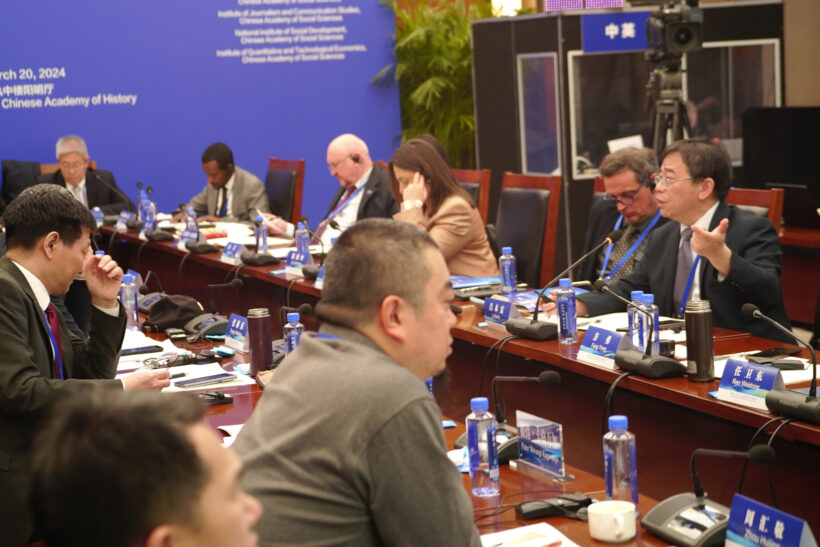This week in Beijing, the “3rd International Forum on Democracy: the Shared Value of Humanity” featured four panels with fifty-five presentations by professors and politicians of different nationalities.
This event alone broadens the criteria for democracy beyond the copyright that some countries are trying to impose to justify their interventions and invasions in various places. Several voices from emerging countries are trying to ensure that the values of mutual respect, fraternity, equality, and justice prevail. Beyond universal suffrage and political alternation, democratic rights must be extended to all aspects of political, economic, and social life throughout the process, before, during, and after decision-making.
Fifteen speakers took part in the Forum on Artificial Intelligence and the Future of Democracy. Each contributed with research from their area of expertise.
Artificial intelligence can be included in the technologies of the new digital society, where the aim is to strengthen mental and relational qualities to keep up with the wave of civilizational progress with rapid and multidimensional intellectual management tools. From the point of view of the purpose of technology, it differs from previous developments that replaced people in their physical work.
The state of affairs is characterized by the impossibility for society as a whole to arbitrate technological development and the disparity of views on digital technologies.
Professor Anatoly Lazarevich, Director of the Institute of Philosophy of the Belarusian National Academy of Sciences, identified the problem as the need to cede personal and public judgment to a minority of developers of artificial intelligence systems. He pointed to the ambiguity of concepts, insufficient empirical experience, and lack of long-term studies, and will propose to face the new challenges of the digital world together, considering that the acute nature of these contradictions makes it necessary to create the framework conditions for the coordinated participation of various social actors (the state, public institutions, the expert community, educational institutions) in solving a new class of problems in the digital world.






